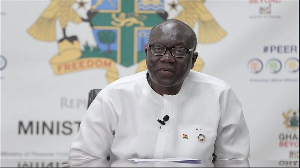Business News of Sunday, 13 September 2015
Source: thefinderonline.com
Businesses worse off under IMF bailout
BUSINESSES in the country say they are the least excited about Ghana’s ongoing programme with the International Monetary Fund (IMF) as their woes have rather worsened six months into the bailout programme.
“The banks do not have liquidity, some of them are on the verge of collapse, the prices of things keep going up, `everything is still being imported, agriculture remains one of the poorly supported sectors of the economy,” observed industry experts and business owners.
Chief Executive Officer (CEO) of the Private Enterprises Federation (PEF), Nana Osei Bonsu wonders why government is already touting its achievement when the lot of businesses in the country continues to worsen.
“The fundamentals are not any better; if you look at inflation, interest rates, the exchange rate and the deficit, nothing has changed so am at a loss as to how it can be said that things are improving,” he said.
According to him, happenings on the ground are far from what is being touted by managers of the economy, adding that “the impact of the economy’s deterioration on businesses is as negative now as it was before and if anything, the cedi is getting worse.”
CEO of the Africa Investment Group, Dr Sam Ankrah said he finds it difficult to go along with those who are touting Ghana’s performance as impressive under the IMF programme.
“As a business person, nothing has changed; the same issues are outstanding so it’s very difficult to say that the IMF programme is dealing with the ills of our economy,” he stated.
Lack of fiscal discipline in the management of the economy compelled government to approach the IMF in August last year for a bailout.
After the IMF Board had approved the request for support, Ghana in April this year commenced a three year austerity programme with the Bretton Woods Institution and received the first tranche of US$114million in the same month to help arrest the falling cedi.
In June, the Fund after its first review of Ghana’s performance under the programme praised managers of the economy for the commitment to fiscal consolidation.
According to the IMF team, “fiscal consolidation is on track, even excluding the payment of dividend by Bank of Ghana. Good revenue performance and containment of the wage bill and other spending as programmed contributed to this positive outcome.”
In spite of the IMF commendation, the macro-economic indicators have been far from positive.
Manufacturing firms are worried that the unfriendly business climate fuelled largely by the depreciation of the local currency will cause the collapse of their businesses.
The 2015 Association of Ghana Industries (AGI) second quarter report (Business Barometer) had 80 per cent of businesses saying they made huge losses in the second quarter of the year as a result of the volatility and depreciation of the currency, inadequate power supply, the multiplicity of taxes, and limited access to credit and high cost of credit where available.
Indeed, some analysts are of the view that even the IMF is concerned about the fact that six months into the programme , the country’s major economic indicators have performed abysmally poor.
Senior Economist and Lecturer at the University of Ghana Business School, Dr Godfred Bokpin recently predicted that the IMF was likely to set limits on further government borrowing.
The Fund, unhappy with the unbridled government expenditure and borrowing, has recently proposed the establishment of an independent body to be called the Fiscal Council.
The Council which is expected to start work next year will help check the country’s rising debts and expenditure.
On the contrary, Economist and Lecturer with the University of CapeCoast (UCC), Dr John Gatsi, is of the view that the complaints from industry are premature since the IMF programme is a three-year long one.
According to him, “we have done just a little over six months out of three years so it’s too early to expect any improvement in economic conditions.”












